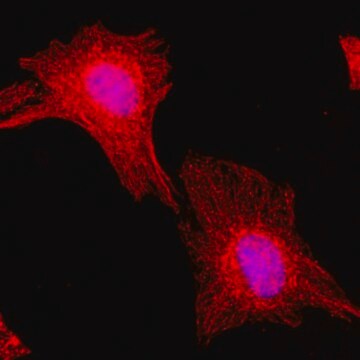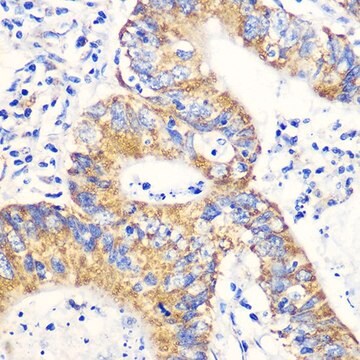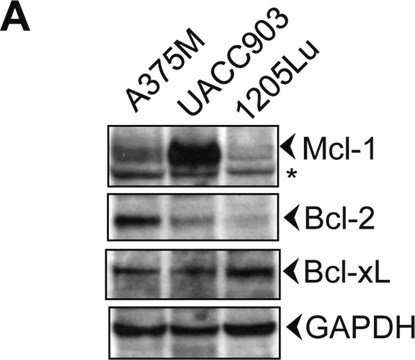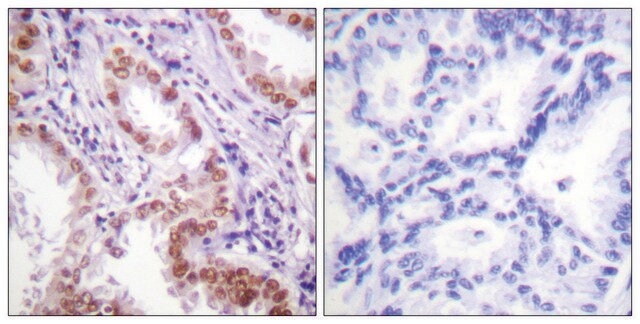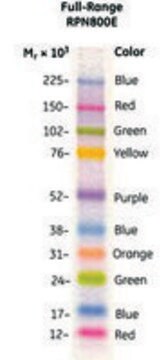Wichtige Dokumente
SAB4200651
Monoclonal Anti-Histone H3 (C-terminal) antibody produced in mouse
clone H6.10, purified from hybridoma cell culture
About This Item
Empfohlene Produkte
Biologische Quelle
mouse
Qualitätsniveau
Antikörperform
purified immunoglobulin
Antikörper-Produkttyp
primary antibodies
Klon
H6.10, monoclonal
Form
buffered aqueous solution
Mol-Gew.
antigen ~14 kDa
Speziesreaktivität
chicken, human, monkey, hamster, canine
Konzentration
~1 mg/mL
Methode(n)
immunoblotting: 0.25-0.5 μg/mL using using histones isolated from human HeLa cells.
immunofluorescence: 5-10 μg/mL using using HeLa cells.
Isotyp
IgG1
Versandbedingung
dry ice
Lagertemp.
−20°C
Posttranslationale Modifikation Target
unmodified
Angaben zum Gen
human ... HIST1H3A(8350)
Allgemeine Beschreibung
Immunogen
Anwendung
- immunoblotting
- immunofluorescence
- western blotting
Biochem./physiol. Wirkung
Physikalische Form
Haftungsausschluss
Sie haben nicht das passende Produkt gefunden?
Probieren Sie unser Produkt-Auswahlhilfe. aus.
Lagerklassenschlüssel
10 - Combustible liquids
WGK
WGK 1
Flammpunkt (°F)
Not applicable
Flammpunkt (°C)
Not applicable
Hier finden Sie alle aktuellen Versionen:
Analysenzertifikate (COA)
Die passende Version wird nicht angezeigt?
Wenn Sie eine bestimmte Version benötigen, können Sie anhand der Lot- oder Chargennummer nach einem spezifischen Zertifikat suchen.
Besitzen Sie dieses Produkt bereits?
In der Dokumentenbibliothek finden Sie die Dokumentation zu den Produkten, die Sie kürzlich erworben haben.
Global Trade Item Number
| SKU | GTIN |
|---|---|
| SAB4200651-100UL | 4061838037411 |
Unser Team von Wissenschaftlern verfügt über Erfahrung in allen Forschungsbereichen einschließlich Life Science, Materialwissenschaften, chemischer Synthese, Chromatographie, Analytik und vielen mehr..
Setzen Sie sich mit dem technischen Dienst in Verbindung.

